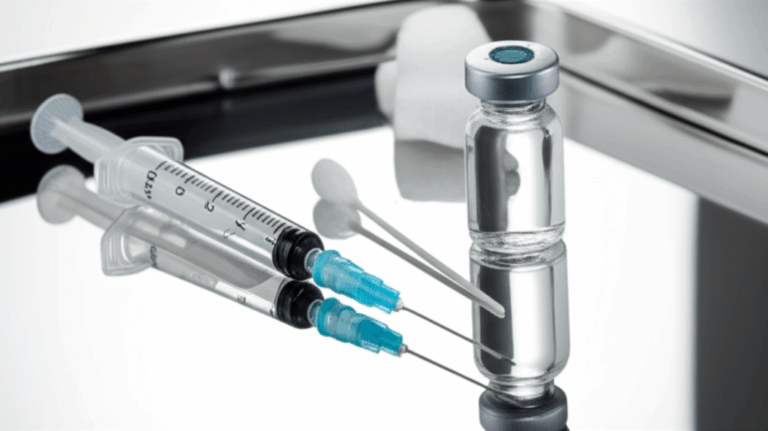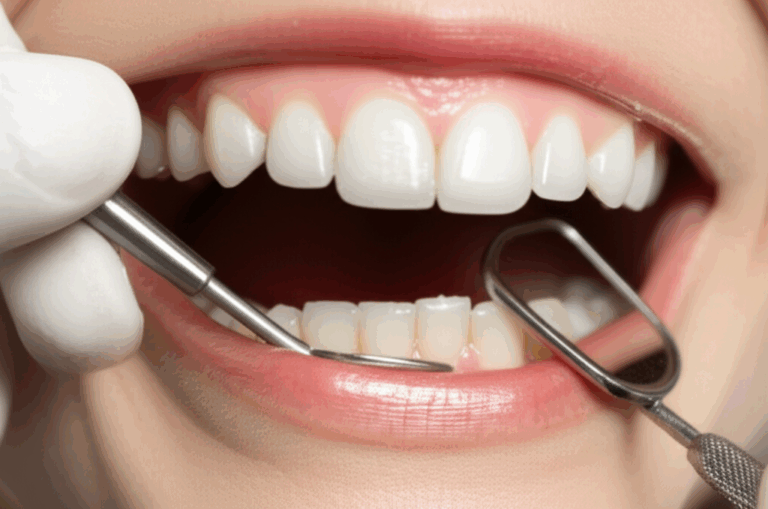
Can Dentists Do Surgery? Your Friendly, No-Nonsense Guide to Oral Procedures
That feeling when your dentist says you “might need oral surgery” can make almost anyone’s heart skip a beat. Maybe you’re picturing a full operating room, masked surgeons, and days of recovery. Or maybe you’re trying to figure out if your regular dentist handles it, or if you need a different kind of specialist. No worries—you’re in the right place.
If you’ve ever wondered, “Can my dentist do surgery?” or “What kind of dental surgeries are even out there?,” trust me, you’re not alone. In fact, it’s one of the most common questions people have about their dental care.
Let’s clear up the confusion. Whether you’re worried about a painful tooth, thinking about dental implants, or just curious about how your dental care team works, I’ll guide you through it all.
In This Article
Here’s what you’ll find below—feel free to jump right to the section that matters most to you:
- The Straight Answer: Can Dentists Actually Do Surgery?
- Understanding Dental Surgery: What Does It Mean?
- What Surgeries Can a General Dentist Perform?
- What Surgeries Do Specialists (Like Oral Surgeons) Handle?
- When Should You See a Specialist for Dental Surgery?
- How Dentists and Specialists Get Qualified for Surgery
- Common Dental Surgeries, Explained Simply
- How to Choose the Right Dental Professional for Your Needs
- Your Takeaway: Next Steps and Pro Tips
The Straight Answer: Can Dentists Actually Do Surgery?
Short answer? Yes, dentists do surgery.
But—just like not every cook is a baker, not every dentist does all kinds of surgery. Dentistry covers a lot, from cleanings to fixing jaws. Some surgeries are just part of what most dentists do, while others are only handled by certain dental pros.
So, Who Actually Does What?
There are two main kinds of dental workers who do surgery:
- General Dentists: These are your regular dentists. They do checkups, cleanings, fillings, and some smaller surgeries.
- Dental Specialists: These are oral and maxillofacial surgeons, periodontists, endodontists, and prosthodontists. They go through extra years of training and focus on more tricky or risky surgeries.
If you picture it like a sliding scale—from a quick tooth pull by your family dentist to big jaw surgery from a specialist—you’ve got the right idea.
Understanding Dental Surgery: What Does It Mean?
Let’s bust a myth right away. When dentists or dental workers say “surgery,” it doesn’t always mean a big, scary operation.
Dental surgery can be as simple as taking out a baby tooth that won’t leave, or as hard as fixing part of the jawbone.
Just think of “surgery” as any dental work that cuts, removes, changes, or repairs things in your mouth.
There are lots of different kinds, but some common ones are:
- Simple tooth pulling
- Wisdom teeth removal
- Implants and bone repairs
- Gum surgery to fix or shape gums
- Root-end surgery (apicoectomy)
- Jaw straightening surgery
- Taking a small sample for testing (biopsy)
Some surgeries happen in your dentist’s chair. Others need special tools and a sharp, trained hand. The next parts show who does what—and why.
What Surgeries Can a General Dentist Perform?
This is where most people get surprised. “Can my dentist really do surgery?”
In lots of cases, yes—but here’s what that really means.
Common Minor Oral Surgeries by General Dentists
- Simple Tooth Pulls: If a tooth has grown out, your dentist can probably take it out right there. If a tooth is stuck or buried, it goes to a specialist.
- Small Abscess Drain: If you get a pocket of infection in your gum, sometimes your dentist can numb and open it, then give you medicine.
- Soft Tissue Sample: If there’s a weird bump or spot in your mouth, your dentist might take a small piece for testing.
- Frenectomy: Got a tight cord under your tongue or lip? Many dentists can quickly cut this if needed.
- Simple Crown Lengthening: Sometimes, your dentist adjusts your gum to show more of the tooth for a crown.
Quick Facts:
- No Pain: General dentists use numbing shots for all small surgeries.
- Training: All dentists learn simple surgery in school, and some do more training after school to offer a few extra procedures.
What Won’t a General Dentist Do?
Your general dentist doesn’t do:
- Tough or buried wisdom teeth removal
- Jaw or face surgeries
- Hard implant cases (like if lots of bone is missing)
- Big gum disease surgeries
If something seems a bit too tricky, your dentist will send you to someone who does that all the time.
That’s actually a really good thing!
What Surgeries Do Specialists Handle?
Some dental workers focus just on hard and tricky cases. These are the people dentists call when things get tough.
Oral and Maxillofacial Surgeons (OMFS): The Mouth and Face Pros
Who They Are:
Oral surgeons do 4-6 extra years of training after dentist school, usually in hospitals.
What They Do:
- Tough Tooth Pulls: Like wisdom teeth that don’t come out on their own.
- Implant Surgery: Putting in new tooth “roots,” often with bone fixes too.
- Bone Repairs: Fixing or building up jawbone.
- Jaw Surgery: Fixing jaws that don’t line up or look odd.
- TMJ Surgery: Fixing big jaw joint problems.
- Face Injury Repairs: After bad falls or accidents.
- Cancer Removal: Taking out tumors and fixing the mouth.
- Cleft Lip and Cleft Palate Fix: For kids and adults born with these.
Think of OMFS as the “general surgeons” for the mouth—handling the hardest jobs.
Periodontists: Gum and Bone Fixers
Who They Are:
Periodontists are all about gums and the bone that holds teeth. They go through 3 extra years of training after dental school.
What They Do:
- Gum Disease Surgery: Like cleaning way under the gums or cutting away sick gum tissue.
- Gum Fix Surgery: Adding gum where it’s thin or covers roots that show.
- Bone Fix Surgery: Helping jawbones grow back strong, often for implants.
- Implant Placement: Especially if gums or bone are weak.
- Smile Fixes: Making the gumline look better.
Endodontists: The Root Canal Experts
Who They Are:
Endodontists get 2-3 extra years of training, just for saving teeth.
What They Do:
- Apicoectomy: If a root canal doesn’t work, they cut out the infected tip of a root.
- Hard Root Canals: For teeth that are really tough to fix.
Prosthodontists: Tooth Replacement Designers
Who They Are:
Prosthodontists focus on putting back missing teeth with crowns, bridges, implants, and dentures.
They often help plan treatment and work with other specialists.
What They Do:
- Getting Ready for False Teeth: Sometimes they do little surgeries to get the mouth ready.
- Implant Planning: Helping with tricky implant jobs.
Specialists Work Together
Sometimes, these specialists all help out on really big cases—imagine a dental “pit crew!”
When Should You See a Specialist for Dental Surgery?
Let’s be honest—most small stuff starts with your regular dentist.
But sometimes, you’ll need an expert.
Here’s when:
- Tough Tooth Pulls: Like stuck wisdom teeth or teeth that are broken deep.
- Implants with Weak Bone: If your jaw isn’t strong enough, you may need a bone fix by a specialist.
- Jaw Joint Problems (TMJ): If your jaw keeps popping, locking, or hurts a lot.
- Strange Spots or Lumps: Parts that need a sample taken (biopsy).
- Bad Gum Disease: When deep cleanings aren’t enough.
- Big Bite Problems: If your teeth don’t line up or your face looks uneven.
- Face Injuries: After falls or accidents.
- Sedation Needed: If you need to be partly or fully asleep, that almost always means a specialist.
In short:
If your dental problem is big, risky, or needs deep sleep medicine, get a specialist.
How Dentists and Specialists Get Qualified for Surgery
Wonder how someone goes from dental school to doing surgery? Here’s a simple look.
General Dentist (DDS or DMD)
- 4 Years Dental School
- Learns Simple Surgery: Like easy pulls and minor fixes.
- Extra Classes: Some dentists take more classes to learn things like implants.
- Licensed: Must pass tests to get a real license to work.
Oral and Maxillofacial Surgeon (OMFS)
- 4 Years Dental School + 4-6 Years Surgery Training: In a hospital, often with doctors.
- Serious Surgery Training: Like fixing broken jaws, tumors, and more.
- Certified: By the American Board of Oral and Maxillofacial Surgery.
Periodontist
- 4 Years Dental School + 3 Years Surgery Training: Focused on gums and bones.
- Certified: By the American Academy of Periodontology.
Endodontist
- 4 Years Dental School + 2-3 Years Specialized School
- Certified: By the American Association of Endodontists.
Prosthodontist
- 4 Years Dental School + 3 Years More School: Focused on putting back broken/missing teeth.
Dentists keep learning even after school—new tools, new tricks.
Be sure to look for certificates and group memberships (like ADA or AAOMS)—good signs your provider is trustworthy.
Common Dental Surgeries, Explained Simply
Let’s skip the big words and talk through some usual dental surgeries—what they are, who does them, and what it’s like.
Wisdom Teeth Removal
Who usually needs it: Teens and young adults, often before wisdom teeth hurt or mess up other teeth.
- Simple Pull: If the tooth is out, a general dentist might do it.
- Surgical Pull: If it’s buried or “stuck,” you’ll need an oral surgeon.
What happens:
You get numb, maybe sleepy medicine too. The dentist or surgeon makes a small cut, takes out the tooth, then you go home the same day.
Getting better:
Most people feel okay after a week. Some swelling and pain is normal—just eat soft foods and use ice packs.
Dental Implants
Who gets them? Anyone missing a tooth who wants something solid and long-lasting.
- The Steps:
Who does it? Specialists (oral surgeons, periodontists) do the surgery. Prosthodontists or your dentist make and place the fake tooth, sometimes working with special dental ceramics lab or implant dental laboratory for custom teeth.
Why people like it: It feels and works kind of like a real tooth.
Good to know:
Sometimes you need a bone fix first, so the implant can hold tight.
Bone Grafting
Needed when: You lost some jawbone from missing teeth, gum disease, or injury.
How it’s done: Dentist adds bone or bone-like stuff where it’s thin, so your own bone can grow back. This helps with future implants or dentures.
Who does it: Specialists, like periodontists or oral surgeons.
Root-End Surgery (Apicoectomy)
When you need it:
If you had a root canal and infection returns, this surgery takes away the small bad tip of the root to save the tooth.
Who does it: Endodontists.
Gum Surgeries
- Cutting Out Sick Gums: Like gingivectomy.
- Adding Gum: Covering roots that show from shrinking gums.
Who does it: Periodontists.
Jaw Surgery (Orthognathic Surgery)
Helps fix jaws that don’t line up, big bite problems, or faces that look uneven.
Who does it: Oral surgeons, sometimes with help from orthodontists.
Small Soft Tissue Surgeries
Samples (biopsies), taking off little lumps, or cutting tight mouth cords, may be done by a dentist. Big or tough cases go to a specialist.
How to Choose the Right Dental Professional for Your Needs
You’re told you need something done. Now what?
1. Start with Your General Dentist
Your usual dentist knows you best.
- Ask what the procedure is, and why you need it
- Find out if they usually do it or recommend a specialist
2. When to See a Specialist
Your dentist refers you to a specialist if:
- The work is tough, risky, or not part of their training
- The job needs sleep medicine or you have tricky health
- You want extra comfort or things not done in the regular office
3. Check Their Training
- Look for certificates and group memberships (ADA, AAOMS, AAP, AAE, etc.)
- Don’t be afraid to ask if they’ve done this thing a lot before
4. Ask About Your Choices
Ask things like:
- What are the good and bad sides?
- How long will it hurt or take to heal?
- Are there options without surgery?
- How do they keep pain away?
5. Insurance and Costs
Some surgeries count as “medical,” not just “dental,” so check your insurance.
Ask for a clear price breakdown; some repairs may use a crown and bridge lab or similar, so check if that adds cost.
6. How You Feel Counts
Pick a team that listens to you and makes you feel good.
Who Is This For? Are You a Good Candidate for Dental Surgery?
Wonder if you’re right for dental surgery? Here’s a quick check:
- Small Surgeries:
Most people can have little things done (like a tooth pull or gum bump) if they’re healthy.
- Big or Sleepy Surgeries:
If you have a health problem, take blood thinners, or get really scared, a specialist is safer—especially if you need to be asleep or in a hospital.
- Kids and Older Folks:
Kid dentists handle most kids; older folks with health issues may need a specialist.
- Special Needs:
If you need a custom fit, like those made in a zirconia lab, you might see a prosthodontist or oral surgeon and a fancy lab.
Remember:
If your dentist sends you to a specialist, it’s not bad! They just want what’s safest and best for you.
Your Healthy Takeaway: Key Points & Empowering Next Steps
Let’s wrap up with the really important stuff:
Key Points:
- Dentists can do surgeries, but which kind depends on training.
- General dentists do easy stuff like simple pulls, little gum or tissue fixes.
- For tricky things (like wisdom teeth, implants, bone fixes, big gum work, jaw repairs), specialists do it.
- Training matters. Check for certificates and groups.
- Dentists and specialists work together often. That’s a good thing!
- Talk openly with your provider—ask questions and get a second opinion if you want.
- Be active with your mouth health—see your dentist, clean your teeth, and don’t ignore pain or swelling.
What To Do Next:
- If you need dental surgery, have your dentist explain the reason, how it’s done, and who should do it.
- Ask your provider how much experience they have with this procedure.
- If you’re sent to a specialist, look at their training and make sure you feel good about them.
- For big repairs, ask about working with great dental labs—like a dental ceramics lab or implant lab—for top quality.
- Remember: Good care now avoids bigger problems later.
Final Word
Taking care of your mouth is a bit like building a strong house. You need good basics, the right people, and, for special jobs, experts who get the details right.
Big or small, surgeries are part of getting a healthy, pain-free smile.
You’re on the right track just by asking questions. Keep talking with your dental team and you’ll be ready to make smart choices for your care.
Got more questions or want more info? Browse our practical guide to common dental problems or check out insights from a trusted dentist. Being active in your own health is always a win. Stay curious and keep smiling!








